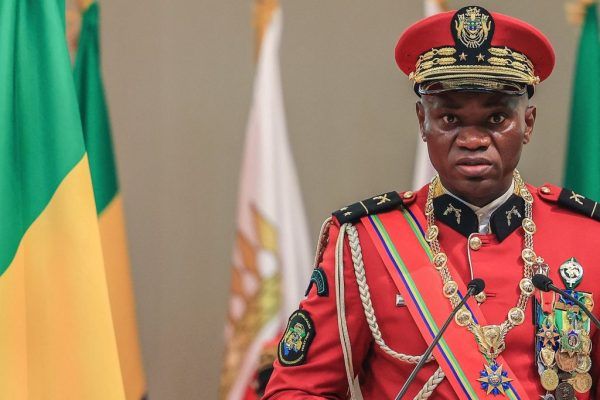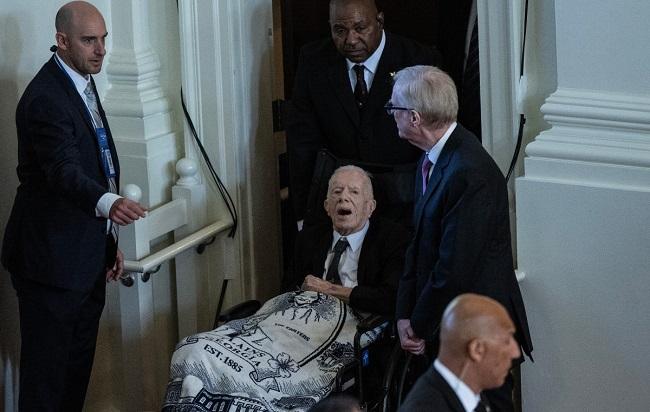Gabon Swears in Coup Leader Brice Oligui Nguema as President Amidst Major Challenges
Following a dramatic coup that ended 55 years of Bongo family rule, Brice Oligui Nguema takes office as Gabon's new president with a 95% vote victory.

On Saturday, Gabon officially swore in Brice Oligui Nguema as its new president, following a dramatic transition of power that saw the end of 55 years of dynastic rule by the Bongo family. Oligui, who led a coup ousting Ali Bongo in August 2023, secured an overwhelming 95 percent of the vote in last month’s election, officially marking his ascension to power.
The ceremony, which took place at the Angondje stadium just outside Libreville, drew thousands of supporters and several high-profile African leaders, including Gambia’s President Adama Barrow, Senegal’s Bassirou Diomaye Faye, Djibouti’s Ismail Omar Guelleh, and Equatorial Guinea’s Teodoro Obiang Nguema Mbasogo. With a 40,000-capacity venue packed with citizens wearing Oligui-branded T-shirts and waving flags, the event was a remarkable display of national support. Additionally, the Democratic Republic of Congo’s Felix Tshisekedi was among those who attended the historic occasion.
This marks the first time Gabon has held an inauguration before such a large audience, with festivities including artistic performances, a military parade, and a “victory concert” scheduled later on the Libreville waterfront. The city saw a significant influx of foreign dignitaries and officials, and authorities have urged citizens to extend a warm welcome while participating in beautification efforts around the stadium and the capital.
Challenges Ahead for Oligui’s Presidency
While the inauguration was a symbol of political transformation, Brice Oligui Nguema faces daunting challenges as he begins his term as president of an oil-rich but economically struggling nation. Gabon’s infrastructure is in dire need of renovation, and the country is grappling with a high public debt, projected to reach 80% of GDP this year. Additionally, issues like an aging electricity grid that frequently leads to power outages, a youth unemployment rate that hovers around 40%, and poor road infrastructure threaten to undermine the country’s stability.
During his 19-month transitional government, Oligui presented himself as a “builder” with a focus on launching construction projects to rejuvenate Gabon’s economy. He also promised a crackdown on corruption, which many view as essential to restoring public trust and putting the country on a path to recovery.
However, turning Gabon’s fortunes around will require much more than cosmetic changes. With the country’s youth and underdeveloped sectors eagerly awaiting tangible improvements, Oligui’s leadership will be closely scrutinized as he navigates both domestic and international expectations in the coming years.
As Gabon embarks on this new chapter, the weight of both high hopes and significant challenges rests on the shoulders of its new leader.





